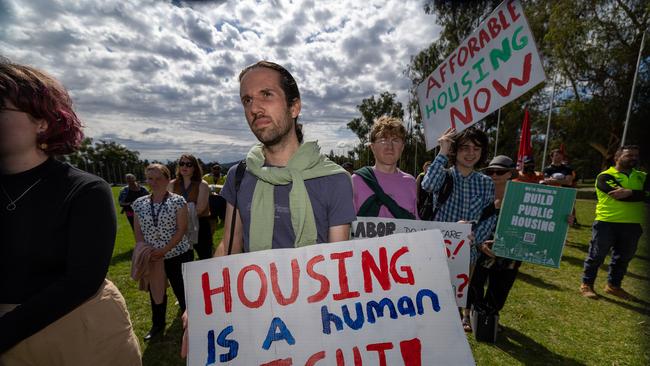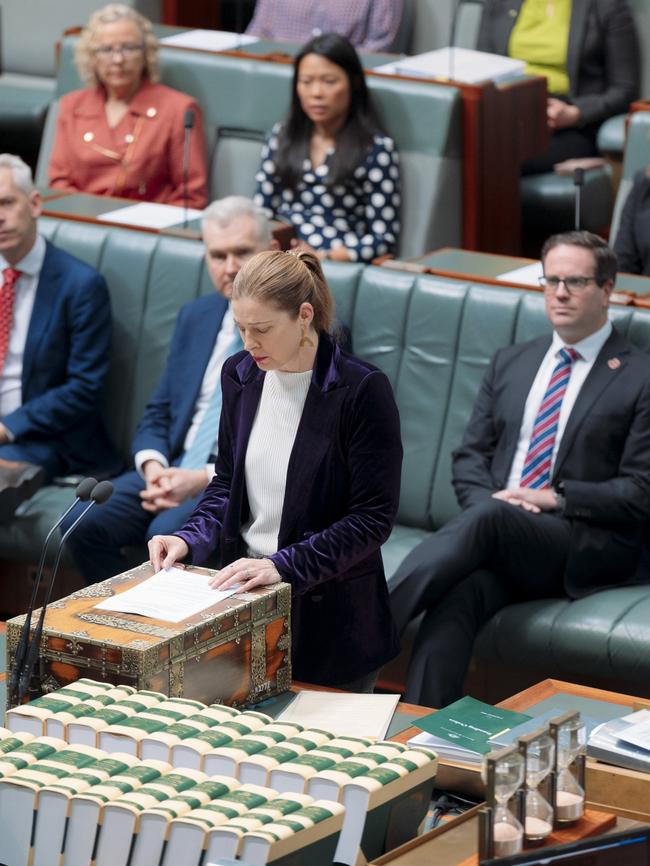National cabinet can’t dodge housing crunch with band-aid fixes

As national cabinet meets this week to discuss the state of housing with a closer look at the rental market, temptation of band-aid solutions that could prolong the pain of rising housing costs must be resisted. For decades, debate has simmered around how we address housing affordability. It has now reached boiling point.
From social and community housing, rental properties to owner-occupiers, there is a common constraint – supply. Rising interest rates, high inflation, a surge in migration and woeful building approvals can all impact the housing market.

The building and construction industry is the canary in the economic coalmine and for months building activity and approvals has not foreshadowed an easing of conditions.
The data speaks for itself. During the June quarter, new home building approvals were 15.5 per cent down on a year earlier and higher-density home building approvals sunk by 14.4 per cent.
This lack of supply, particularly among higher-density homes which is relied upon by renters, is putting more pressure on the rental market with rental inflation hitting its highest rate in 14 years.
Rents rose by 6.3 per cent over the year to June 2023 which is in stark contrast to just two years ago when average rents were in decline and on the way down. Other historical spikes occurred in 1975 (17.2 per cent), 1988 (11.6 per cent) and 2008 (8.4 per cent).
While there is no doubt that measures are needed to address the housing crisis, rental controls are not be the silver bullet some are claiming them to be.
The imposition of rent caps discourages property investors from entering the market or maintaining existing stock, leading to a decrease in the supply and quality of available rental properties, worsening the crisis over the long-term.
We must look to history when crises were avoided. During the 2010s, record volumes of higher density home building successfully neutralised rental pressures, even though migration was high.

Migration does not result in rental market pressure if the supply of new higher-density homes is large enough.
Over that decade, average higher density home starts were 82,300, with activity peaking at 114,000 starts in 2016. Over the year to March 2023, work began on less than 65,000 new homes in this category. This needs to change course.
We need to get as many low-cost rental premises into the market as possible and avoid interventions that restrict housing quality and supply.
For those who rely on affordable rental properties, the availability of these homes can make a substantial difference in their quality of life.
Demonising migration when the country is crying out for more workers, around half a million new workers in building and construction alone, will not solve the housing crisis.
Rental controls while well-intentioned to protect vulnerable renters in the short-term, prolongs the problem and will not solve the housing crisis.
These measures fail to consider the complex dynamics of the market and the unintended consequences they can bring.
Those who depend on affordable housing deserve solutions that genuinely address their needs and do not inadvertently exacerbate the situation.
Our focus to solving the housing crisis is two-fold, getting inflation back under control which will ease interest rates and fostering an environment conducive to investment and development.
This ultimately takes pressure off mortgage holders and rental prices.
Master Builders Australia firmly believes the solution is working collaboratively with the building and construction industry to remove impediments and incentivise growth by making it easier for new projects to get the green light.
This can be done by kickstarting private investment and reducing the cost of building homes through better approaches to planning, reducing backlogs, minimising taxes and charges, and improving productivity in the industry by simplifying building regulations and the industrial relations environment.

Last year’s Housing Accord saw significant steps made by federal, state and territory governments with targeted initiatives towards social and affordable housing where rental stress is generally worst. But the momentum cannot be lost.
The political barrier of passing the Housing Australia Future Fund and other housing supply legislation is holding back these targeted efforts.
We cannot afford to play politics with the lives of many Australians who are struggling with housing costs eating away at an increasing share of their income.
It is vital the national cabinet agrees this week to remove supply constraints agreed to under the Accord – unlocking the door to housing affordability hinges on supply.
By taking an evidence-based approach, we can pave the way for a sustainable solution that not only addresses the housing crisis and pain felt by Australians but also ensures the long-term health of the housing market.
Denita Wawn is chief executive of Master Builders Australia.







There is no denying millions of Australians are feeling the mounting pressure of rising costs of living across the housing spectrum. Renters and mortgage holders are navigating the challenges of securing stable and affordable housing.